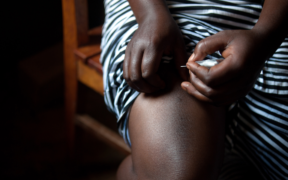Author:
Katey Peck

Providing women with containers for DMPA-subcutaneous (DMPA-SC) storage and sharps can help to encourage safe self-injection practices at home. Improper disposal in pit latrines or open spaces remains an implementation challenge to safely scaling this popular and highly effective method. With training from health providers and a provided puncture-proof container, self-injection clients enrolled in a pilot study in Ghana were able to appropriately store and dispose of DMPA-SC injectable contraceptives, offering lessons for scale-up.

Despite the widely agreed importance of measuring QoC, client perspectives are often missing from routine monitoring and studies. The Evidence Project has developed a package of validated, evidence-based tools and training materials to support governments and implementing partners in measuring and monitoring QoC. Measuring QoC from the clients’ perspective will help programs celebrate successes, target areas for improvement, and ultimately improve uptake and continuation of voluntary contraceptive use.













